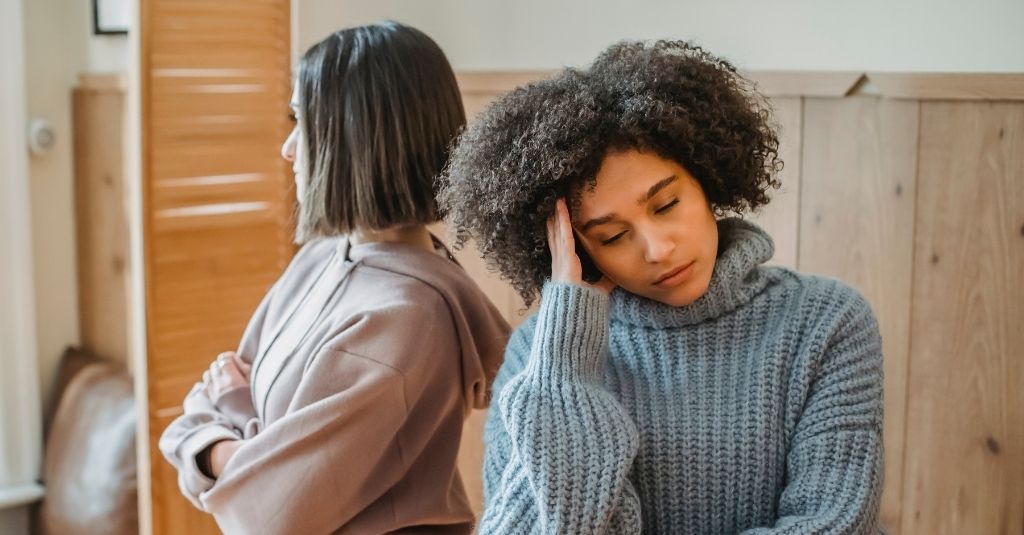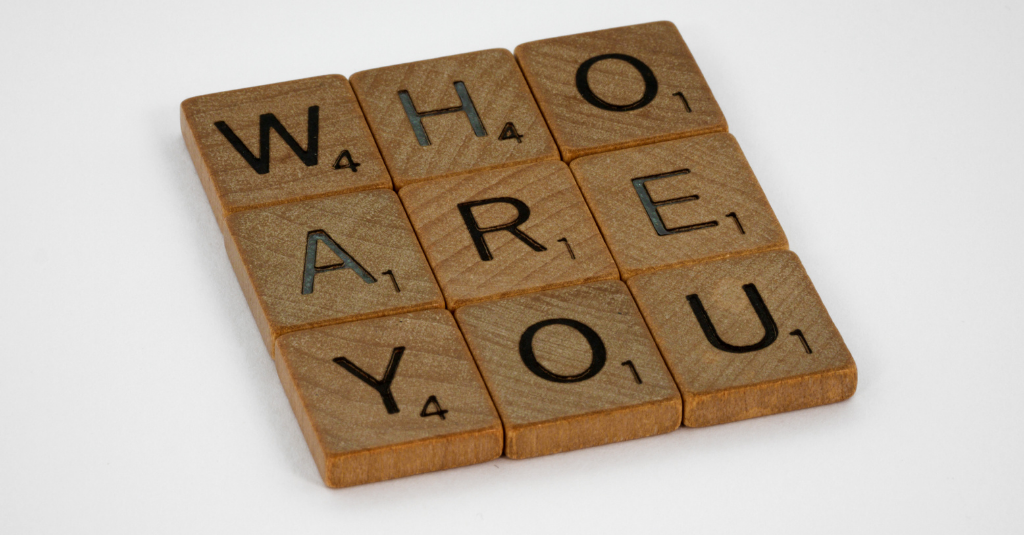How do you agree to disagree during a difficult conversation?
How do you speak up about issues that matter and still maintain a respectful yet conflicting opinion? For example during Covid protocol and those who refuse to follow the rules, don’t believe in vaccines?
Why do people get so entrenched in their ideas that they refuse to see the other side instead of being willing to seek ways to compromise?
Can you find a way for a win-win in a difficult conversation? What would that look and feel like?
We have conflicts every day.
Sometimes they are big and at other times the conflicts can sometimes be small. Conflicts can be between that chatterbox inside our head. Conflicts can include our personal and professional relationships, with our friends and in public spaces.
For example; someone cuts you off in traffic, in the grocery story people step in front of you, a car drives into a puddle and splashes dirty water all over you, at a hospital you are ignored or dismissed as you ask questions and voice concerns, at work, there is a bully and poor leadership. Many different conflicts are happening to each of us every day.

Why?
Well, we are all different. I don’t just mean race, religion, and culture. It goes deeper than that because many parts of each of us make us who we are today and how we react/respond. Let’s face it none of us had perfect childhoods, perfect parents with conflict resolution, effective communication and listening skills. I look at individuality like a smoothie in a blender. Yummy. Some like blueberries and bananas, others may prefer strawberries and pineapple. Each smoothie may have some similarities but mostly unique. Just like you.
We cannot escape conflict because everybody has their own Map of Reality.
Our Map of Reality is who we are (unique smoothie), where we have come from, our life experiences, family life, personality, cultural and religious beliefs, any trauma, how we define right/wrong and good/ bad which are our morals and ethics these together, in the ‘blender’ create who we are today.
Our past abilities to deal with conflict and self-esteem directly affect and impact how we respond to conflicts, and our perception of our self-esteem of today.
No matter what is happening in our life we need to address conflicts respectfully and also be respected. From the book ‘Communication & Relationships’ by Daniel Rosin Ph.D.
Communication is an art form. Discussion-“Listener-Speaker”-Units are the building blocks of conversation. Conversation is a series of these many units strung together with feeling so they flow into what is referred to as “meaningful” communication.
Often in conflicts, there are misunderstandings, misuse of language, egos and perceptions. If we race to judgements and anger then the walls are up and nothing gets resolved. As children, we develop survivor behaviours, conflict behaviours that were fine as children however are not effective as adults. This is a child time zone and we need to learn and develop more effective coping skills in expression, communication and listening with the intent to learn. For me that was a tough one, being willing to listen with the intent to learn. My reaction was first to get defensive and start building those huge walls. Listening requires a lot of mental attention. Look at it this way, if you are discussing something and before the person has finished speaking and you already have an answer, then you are not listening with the intent to understand. How often has this happened to you? I admit it a lot of times over my lifetime. Effective listening requires hearing to the very last word, focusing on the message then formulating a response. It is mental energy and worth the extra few seconds. Awareness is the key. Like any pattern of behaviour, it takes time to pivot.
From the book Difficult Conversations, How to Discuss what Matters Most Douglas Stone, Bruce Patton and Shelia Heen
In fact, the gap between what you’re really thinking and what you’re saying is part of what makes a conversation difficult. You’re distracted by al that’s going on inside.
Each Difficult Conversation Is really Three Conversations
1 The “What Happened?” Conversation, 2. The Feelings Conversation and 3. The Identity Conversation.
Then what happened is about who did what to whom, who said and who did what, who is right or wrong.
The feelings conversation is about feelings. I don’t want to hurt anyone, are my feelings valid. If not addressed they are eventually expressed.
The identity conversation. We think our identity is under attack. Are we worthy, competent, good or bad?
It about being mindful of our own internal triggers, feelings and awareness.
Ask yourself have you ever responded and realize later realized that response was immature and childish?
Have you ever been in a difficult conversation or dealing with someone whose behaviour reminded you of a six-year-old?
Of course, this has happened to everybody at some point in time. I admit there are moments of less than adult behaviour during passionate conversations or conflicts. Yes, I admit it was like a child’s reaction before realizing that was not effective or appropriate behaviour. We can learn from our mistakes if we are willing and have the awareness. Often people grow up with the same patterns of dealing with conflicts, and difficult conversations as they used as children. Yelling and screaming, shutting down, ignoring, putting down, throwing things, violence is not adult behaviours in dealing with conflict or difficult conversations.
The most important part of recognizing our own behaviour is knowing that we are accountable for behaviour in all situations of life. Be willing to be curious. We have a choice in how we respond, in what we retain and how we react. That is empowering.
Not knowing how to behave in a respectful manner dealing with conflict is not an excuse for violence, humiliation and abuse. From both sides, there needs to be respect, understanding, willingness to see the other side even if we may not agree, and compassion for the experiences the other person may be suffering. Shifting to curiosity in deeper understanding. Asking questions and active listening from both sides. As soon as you feel the tension the walls are coming up, be mindful. I can remember recently talking to a shop clerk who was, in my opinion, rude and abrupt. At first, I thought well maybe she is having a bad day. Like this happens to everyone. However, upon a second and third interaction, I began to feel that rudeness was ‘personal’ and I felt angry and disrespected. Remember we all have our own triggers in what makes us upset, angry, sad, scared and in this incident not being respected.
I was merely asking questions for clarification on a product. It was an active choice on the fourth interaction to say in a respectful voice ‘I am sorry if I have done something to bother you. Have I done something to offend you? Because I have noticed that you seem angry when I ask questions? I understand you are busy and only want to get some help.’ Her demeanour changed in an instant and was most apologetic. She was probably unaware of how her body language, voice and words affected others. Everyone will have their own language style and mine is to build better understanding as well as speak up for myself and those who cannot.
20 years of difficult conversations and workplace conflicts in the RCMP.
After years of workplace bullying and harassment finding that balance is an ongoing journey as new conflicts and situations happen daily. Speaking up is not about yelling. It is about knowing you have the right to be treated with respect. Also learning to let go of resentments from the conflicts and parties involved.
If you think about it, we only see a snapshot of people and we really have no idea the true extent of suffering or challenges someone may be experiencing at the time we are interacting.
Awareness of our own patterns of behaviour can help us to identify our own time zones, child and adult, reactions. Let’s face it none of us is perfect and we’ve all been a child at some point dealing with conflicts and passionate or difficult conversations.
Sometimes we revert to childlike behaviours when we feel we are not being heard when our identity is challenged or we feel blamed. Next time you feel that inner angst or tension remember the three parts of a difficult conversation, ask yourself am I willing to listen, is being right more important than being happy, is this issue worth my mental calmness? Only you can answer and that is empowering.
Remember we are all unique, different Map of Reality, be aware, be curious and empowered. It is not what we say but how we say it!

